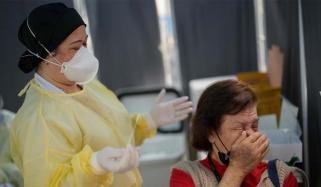
The World Health Organization announced on Tuesday the deadly outbreak of psittacosis, a respiratory bacterial infection known as 'parrot fever,' in several European countries.
Five deaths have been reported from the outbreak, first discovered in November 2023.
Parrot fever, caused by a bacterial infection within the Chlamydia family, spreads through contact with wild and domesticated avian species, including poultry.
Despite appearing asymptomatic, infected birds release the bacteria through respiration and excretion, as potential disease carriers.
According to the US Centers for Disease Control and Prevention, humans often acquire parrot fever by inhaling dust containing secretions from infected birds. Transmission can also occur through bird bites or direct contact between a bird's beak and a person's mouth.
Consumption of infected animals does not lead to the spread of the disease.
Although human-to-human transmission is possible, studies suggest it is rare. Recent cases predominantly involve exposure to infected domestic or wild birds, as the World Health Organization highlighted.
Cases have been reported in Austria, Denmark, Germany, Sweden, and the Netherlands. Most people with parrot fever experience mild symptoms, typically five to 14 days after exposure to an infected bird, including headache, muscle pain, dry cough, fever, and chills. Treatment with antibiotics is effective.
The WHO closely monitors the cases in Europe, yet it assesses the risk as low.















